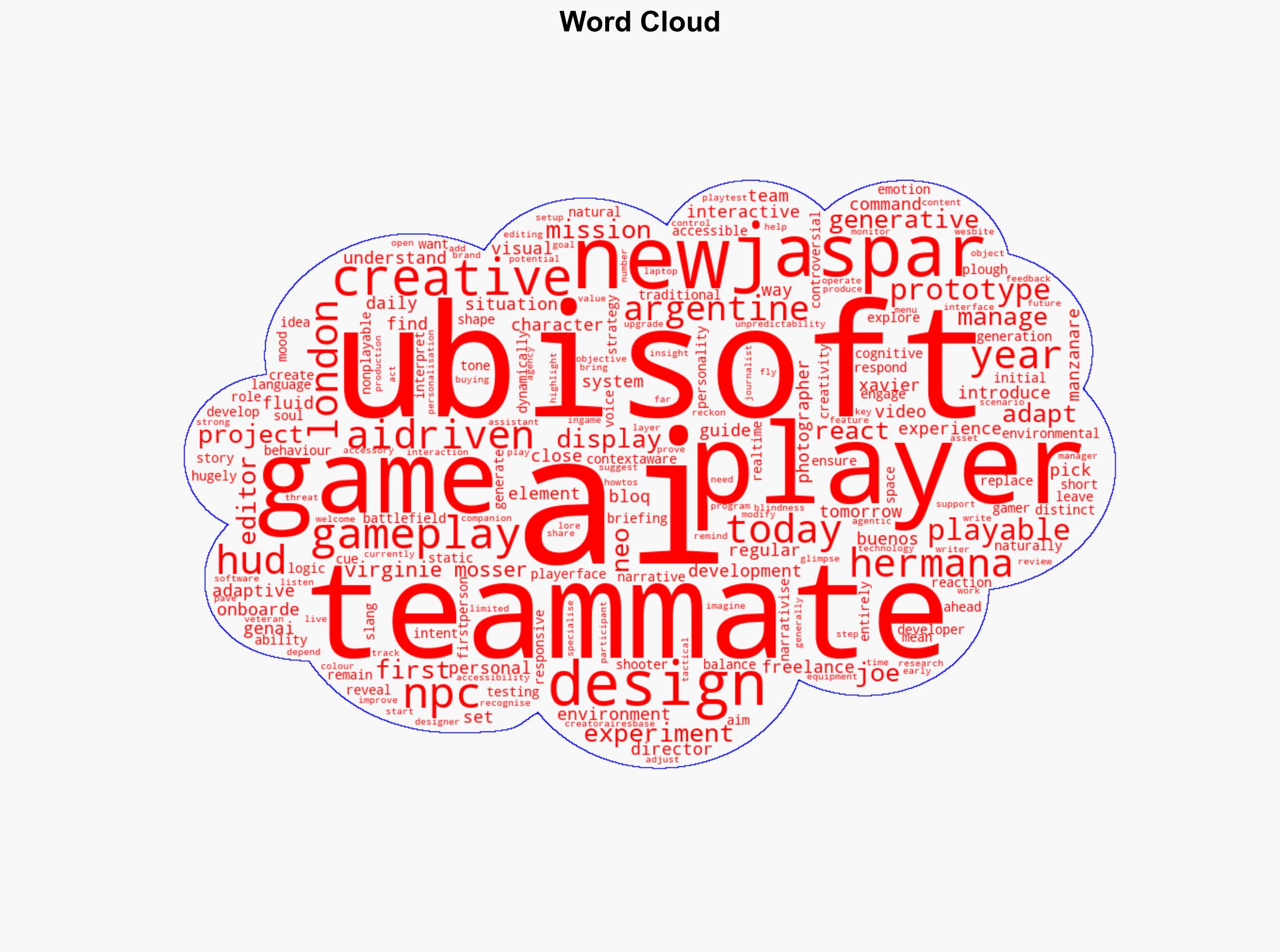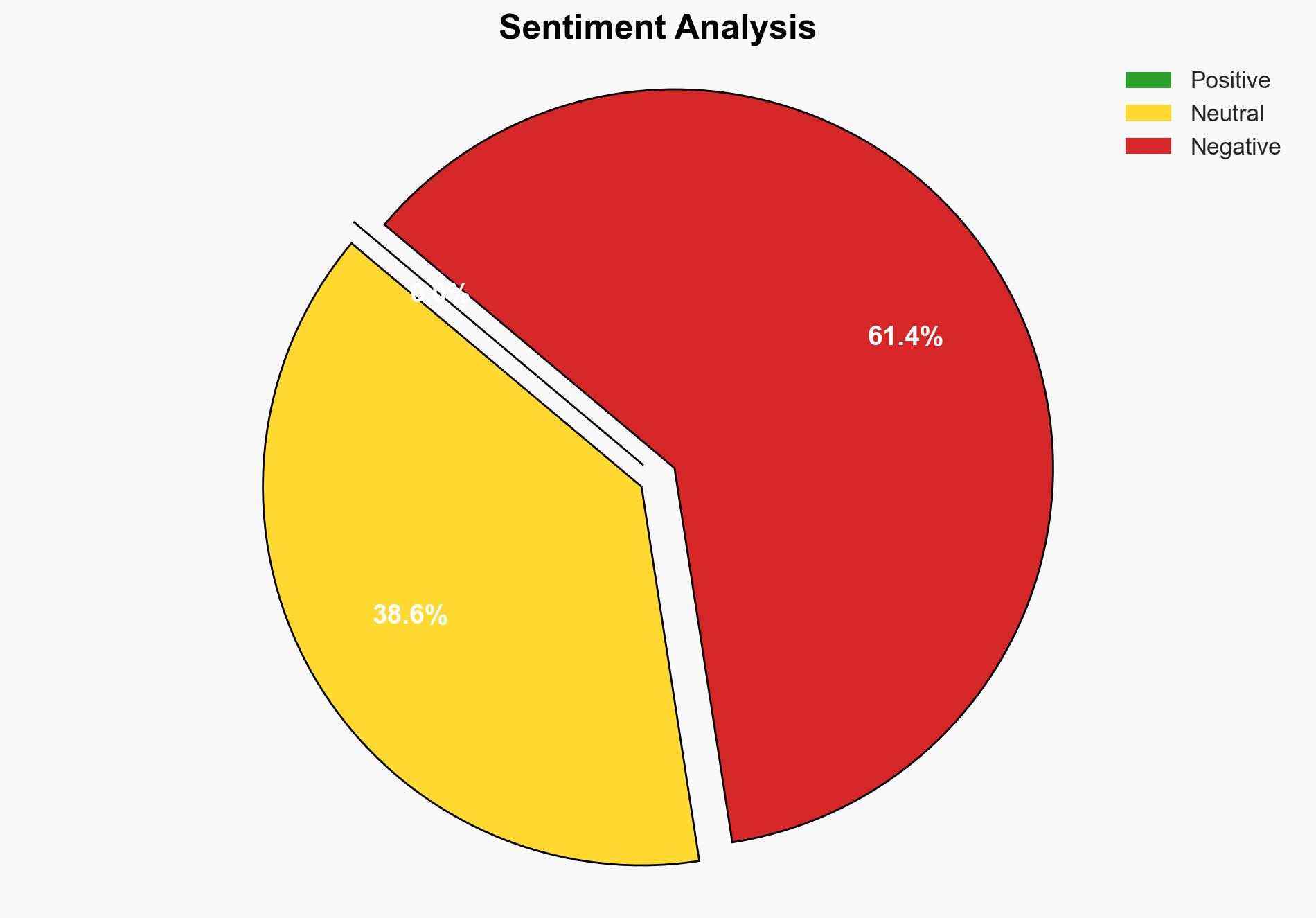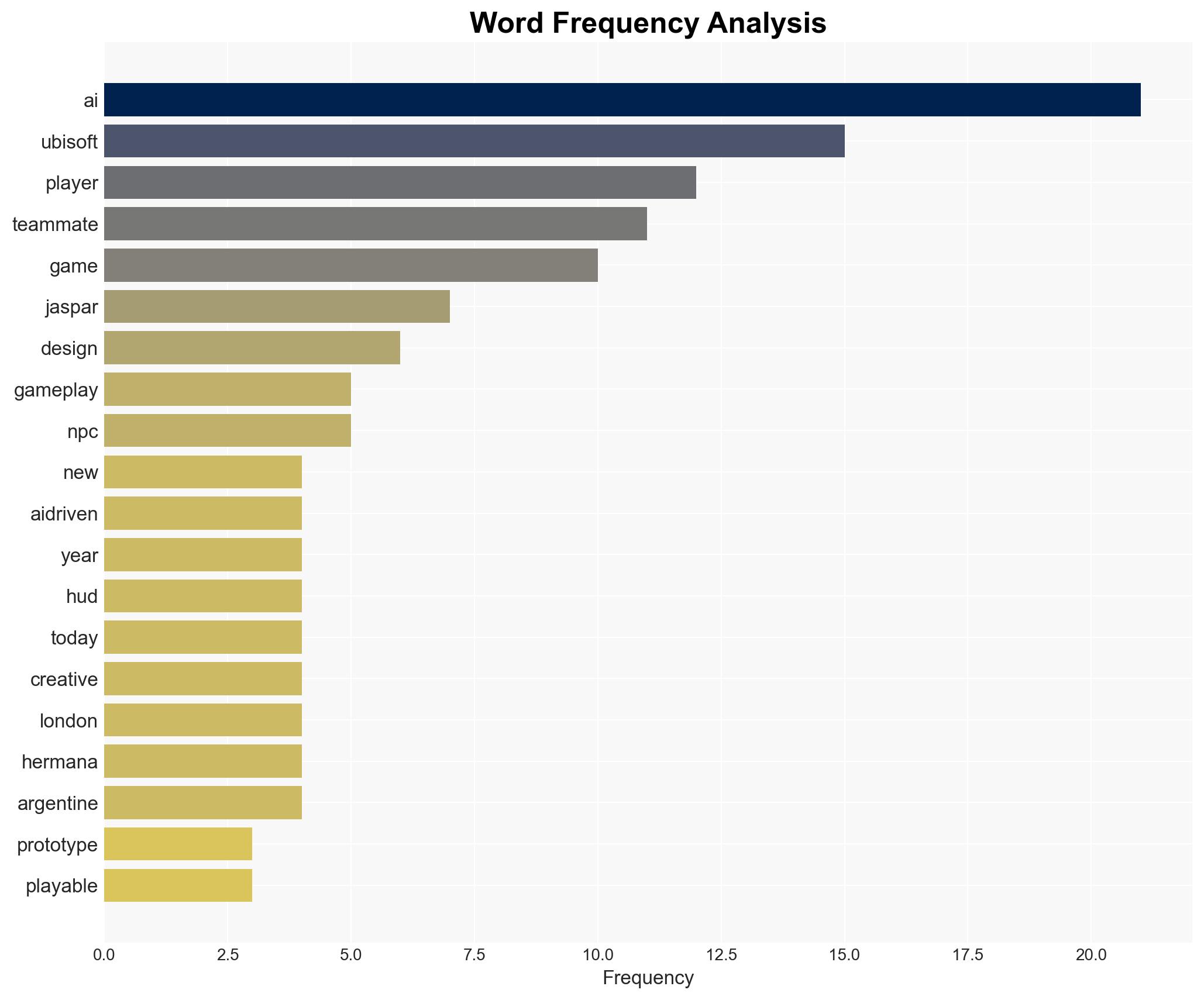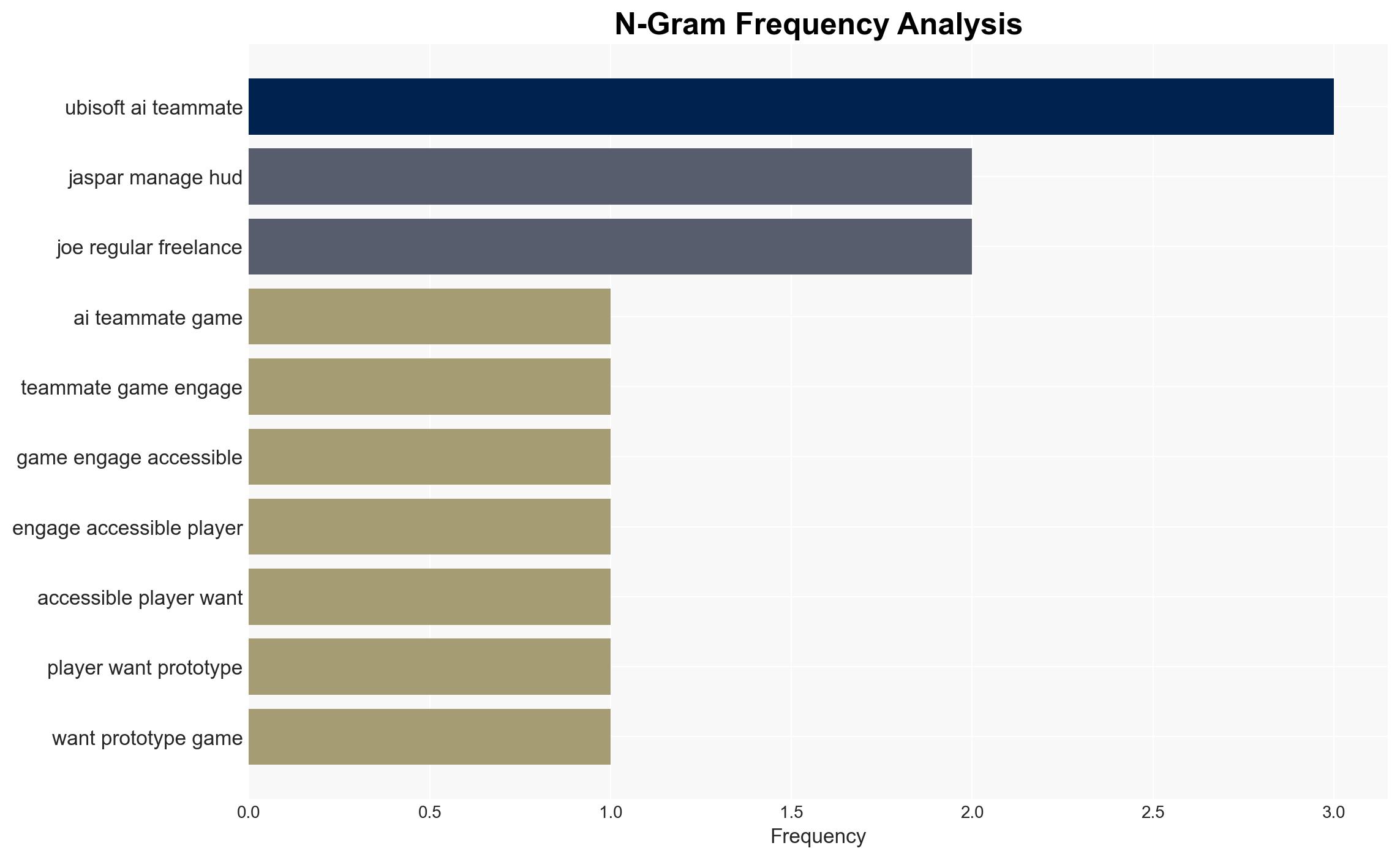Ubisoft says AI Teammates will make gaming more engaging and accessible but will players want them
Published on: 2025-11-24
AI-powered OSINT brief from verified open sources. Automated NLP signal extraction with human verification. See our Methodology and Why WorldWideWatchers.
Intelligence Report: Ubisoft’s AI Teammates in Gaming
1. BLUF (Bottom Line Up Front)
Ubisoft’s integration of AI teammates aims to enhance gaming engagement and accessibility. The most supported hypothesis suggests that while AI teammates could revolutionize gaming experiences, their acceptance will heavily depend on user adaptability and the perceived value they add. Confidence Level: Moderate. Recommended action includes Ubisoft conducting extensive user testing and feedback collection to refine AI functionalities and address potential user resistance.
2. Competing Hypotheses
Hypothesis 1: AI teammates will significantly enhance player engagement and accessibility, leading to widespread adoption and satisfaction.
Hypothesis 2: AI teammates may face resistance from players who prefer traditional gaming experiences, limiting their acceptance and success.
Hypothesis 1 is more likely if Ubisoft can demonstrate clear benefits and seamless integration of AI into gameplay. However, Hypothesis 2 remains plausible due to potential resistance from traditional gamers and concerns over AI’s impact on game dynamics.
3. Key Assumptions and Red Flags
Assumptions: Players will value enhanced engagement and accessibility over traditional gameplay experiences. AI teammates will function as intended without significant technical issues.
Red Flags: Potential bias in feedback from early adopters who may not represent the broader gaming community. Over-reliance on AI could lead to reduced player agency and creativity.
4. Implications and Strategic Risks
The introduction of AI teammates could disrupt traditional gaming markets, leading to shifts in player expectations and demands. Failure to adequately address user concerns could result in reputational damage for Ubisoft. Additionally, there is a risk of increased cyber threats targeting AI systems, potentially compromising player data and game integrity.
5. Recommendations and Outlook
- Conduct comprehensive user testing across diverse demographics to gather feedback and refine AI functionalities.
- Develop robust cybersecurity measures to protect AI systems and player data.
- Best-case scenario: Successful integration of AI leads to increased player engagement and market expansion.
- Worst-case scenario: AI teammates are rejected by the gaming community, resulting in financial losses and reputational damage.
- Most-likely scenario: Gradual acceptance of AI teammates as players adapt to new gaming dynamics, contingent on continuous improvements and user feedback.
6. Key Individuals and Entities
Virginie Mosser – Narrative Director at Ubisoft
Xavier Manzanare – Director of Gameplay at Ubisoft
7. Thematic Tags
Cybersecurity, AI in Gaming, Player Engagement, Game Development
Structured Analytic Techniques Applied
- Adversarial Threat Simulation: Model and simulate actions of cyber adversaries to anticipate vulnerabilities and improve resilience.
- Indicators Development: Detect and monitor behavioral or technical anomalies across systems for early threat detection.
- Bayesian Scenario Modeling: Forecast futures under uncertainty via probabilistic logic.
Explore more:
Cybersecurity Briefs ·
Daily Summary ·
Support us





